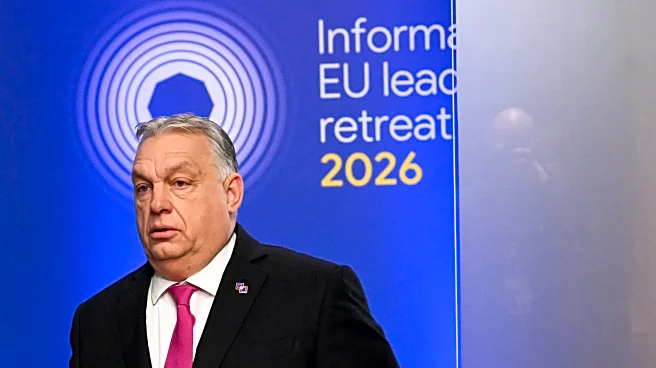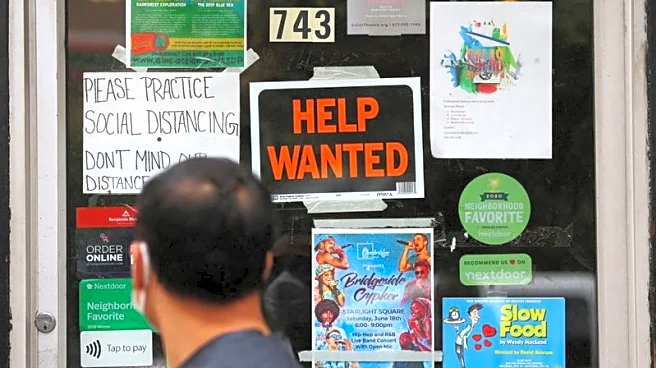What's Happening?
In Senegal, a United Nations-backed initiative known as 'schools for husbands' is gaining traction. The program aims to educate men on 'positive masculinity' and encourage their involvement in household chores and family health decisions. Imam Ibrahima Diane, a participant, advocates for men to support their wives and children, emphasizing the importance of shared responsibilities. The initiative addresses gender-based violence and promotes reproductive health, with men learning about the risks of home births and the benefits of hospital deliveries. The program, operational since 2011, has trained over 300 men across 20 schools, fostering gender equality and reducing forced marriages.
Why It's Important?
The initiative is significant as it addresses high maternal and infant mortality rates in Senegal, where cultural norms often restrict women's access to healthcare. By involving men in maternal health, the program aims to change attitudes and improve health outcomes. The Ministry of Women, Family, Gender and Child Protection supports the initiative, recognizing its potential to combat mortality rates. The program's success could serve as a model for other countries facing similar challenges, highlighting the importance of male involvement in promoting women's health and rights.
What's Next?
The program continues to expand, with trained men acting as peer educators in their communities. They host informal talks and visit homes to promote gender equality and reproductive health. The initiative faces challenges in changing mindsets, particularly around abstract concepts of gender equality. However, by focusing on women's health rights, the program aims to make these concepts more relatable and universal. The ongoing efforts are crucial in achieving the United Nations' global goals for reducing maternal and newborn deaths by 2030.
Beyond the Headlines
The program's impact extends beyond immediate health benefits, potentially leading to long-term cultural shifts in gender roles. By challenging patriarchal norms, the initiative promotes a more equitable society, reducing gender-based violence and increasing acceptance of family planning. The program also addresses misconceptions about gender discussions, aiming to create a more inclusive environment for women's rights.












